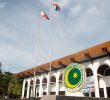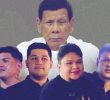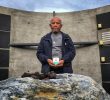The International Federation of Journalists (IFJ) today said President Hugo Chavez�s decision to close a television station that has been critical of his government and his recent remarks calling into question the future of free trade unionism signal a worrying development for media pluralism and union rights in Venezuela.
�For there to be true media freedom in Venezuela, there must be a plurality of voices, both on the airwaves and in newsrooms,� said IFJ General Secretary Aidan White. �Shutting down a broadcaster without due process and threatening to curb free trades unionism could lead to more attacks on fundamental rights.�
On Sunday, Chavez again affirmed that he will not renew the license for private TV station Radio Caracas Television (RCTV) on 27 May when its current licence runs out. This decision will mean job losses for around 2,000 workers directly or indirectly affected and the silencing of one of Venezuela�s oldest broadcasters.
At the same time, Chavez has been calling into question the future of free trade unions. The IFJ is supporting protests by its Venezuelan affiliate, the Sindicato Nacional de Trabajadores de la Prensa (SNTP), over the closure of RCTV and the threats against independent unions.
The IFJ says that threats to fundamental liberties can undermine support for the Chavez government�s redistributative economics and ambitions to end poverty and social deprivation.
In a letter to Chavez, White urged the President �to make clear Venezuela�s continued commitment to its obligations under international law regarding trade union freedom and to reassure journalists and media staff in your country that their right to organise is and will remain protected.�
The SNTP and IFJ fear that Chavez�s public statement on March 24 in which he emphatically pronounced that in the context of the revolution �unions must disappear,� will lead to an attack on independent unions. It is a sentiment that worries the journalists and media staff of Venezuela and causes equal concern to all 500,000 journalist members of the IFJ.
Free association and union rights are guaranteed by the International Convention on Human Rights, ILO conventions 89 and 98 and are the cornerstone of democratic society.
The IFJ warned that the plans to close down RCTV, which has been staunchly critical of the President, while reinforcing the government�s influence and control over more than 200 media outlets is potentially a �catastrophe for pluralism and social rights.�
President Hugo Chavez accuses the network, and other independent media, of involvement in the failed attempt to overthrow his government in April 2002. RCTV and others played a highly controversial role in these events � leading to protests and criticism, which the IFJ itself endorsed in its report Missing Link in Venezuela�s Political Crisis (2002).
�There has been no warning or consultation with the workforce, which suggests that the closure of RCTV, without independent scrutiny of its actions, will be a disaster both for press freedom and for thousands of journalists, media staff and their families,� said White. �The protest over this action by unions shows why independent trade unions are vital to Venezuelan media and to society as a whole.�
****** INBOX is an archive of press releases, statements, announcements, letters to the editors, and manifestos sent to Davao Today for publication. Please email your materials to davaotoday@gmail.com. Davao Today reserves the right to edit or refuse material for publication. *****










